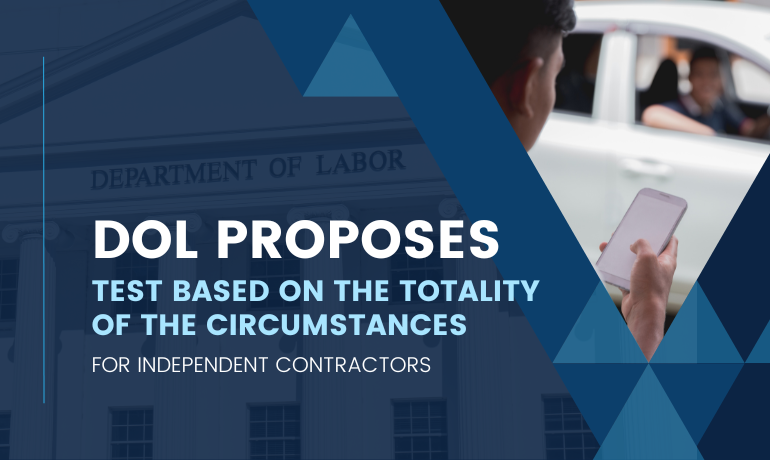EEOC Takes Aim
In the summer of 2009, the EEOC said it was contemplating issuing new guidance on when credit history checks can be used as part of the hiring process and planned to revisit longstanding guidance that explains when employers can use arrest and conviction records in pre-employment screening.
On Sept. 30, 2009, the EEOC filed a lawsuit (EEOC v. Freeman Cos., D. Md., No. 09-CV-02573) in the U.S. district court in Maryland against Freeman Companies, a Dallas-based corporate event-planning company. The EEOC claims that Freeman has used credit histories and criminal background checks to unlawfully “deprive a class of black, Hispanic and male job applicants of equal employment opportunities and otherwise adversely affect their status as applicants because of their race, national origin and sex.”
The agency is asking the court to prohibit Freeman from using credit histories and criminal background checks. It’s also requesting that the court order the company to hire applicants who were rejected on the basis of the reports and compensate them with back pay from the time they were rejected.
The EEOC’s position in Freeman is consistent with informal guidance the EEOC issued on Dec. 1, 2005. In this informal discussion letter, the EEOC said that an employer who uses a “blanket” policy of not hiring any applicant who has a history of arrest or convictions violates Title VII of the Civil Rights Act because such a policy “disproportionately excludes members of certain racial and ethnic groups, unless the employer can demonstrate a business need for use of this criteria.”
Amending the FCRA
U.S. Rep. Steve Cohen, D-Tenn., introduced H.R. 3149, the Equal Employment for All Act, a nationwide bill that proposes to amend the FCRA to ban employers from using credit reports entirely in making hiring or promotion decisions.
“This bill would give some of our most vulnerable, ‘credit-challenged’ citizens—students, recent college graduates, low-income families, senior citizens and minorities—the opportunity to begin rebuilding their credit history by obtaining a job,” Cohen said on his web site. “Far too often, employers turn down ‘credit-challenged’ applicants because they have erroneously linked credit scores to potential job performance,” he said.
The new law would prohibit employers from checking credit reports, even if the employee signs a consent form. There would be some exceptions to the new law, keeping it legal for employers to use credit reports in certain situations. Credit reports would continue to be used for positions that require national security or Federal Deposit Insurance Corp. clearance, jobs with state and local government agencies that already use credit reports, and certain positions at financial institutions.
Takeaways for HR
Avoid blanket applications of credit checks for all positions, advises Leslie E. Silverman, partner, Proskauer Rose LLP, in Washington, D.C. “It would be really risky for your company to use a ‘one-size-fits-all’ policy,” Silverman said in a March 3, 2010, Society for Human Resource Management webcast. “A blanket application of credit checks [provides] your company with less of an ability to argue that it is job related,” she said. Silverman advised that HR: Be selective on which positions to subject to a credit check. Be able to articulate a rational reason on why a credit check is needed for predicting job performance and related to the business functions. Ensure that your managers use only the information relevant to the job in question that is needed to make an employment decision. “Avoid making decisions based on extraneous issues if you can avoid it,” Silverman said.
Allow your candidates to explain the reasons for negative credit information. “This will place you in a better position to assert that the credit information really was job related and consistent with business necessity,” she said. Given the myriad of state law requirements, the pending federal legislation and the EEOC’s renewed interest in pre-employment screening and hiring practices, it is important that employers review their pre-employment screening processes to ensure that they are seeking credit and criminal information from applicants in appropriate circumstances and in a lawful manner, she concluded.
Roy Maurer is a staff writer for SHRM.
This article was reprinted from SHRM.
Does this mean that employers should stop doing background checks on all of their employees? Absolutely not. It simply means that employers background check policies need to catch up to other important areas in the company’s policy manual. Employers need to analyze each class of job adn decide based on their own criteria, what background check will be conducted. Blanket policies for interpreting the background checks will no longer work either. It will not be enough to say, “we do not hire anyone convicted of a felony”. Employers will have to develop consistent and impartial policies for interpreting background check results.
The really good news is True Hire can help!
We can come in and consult with you to develop specific background check packages tailored to individual positions or classes of employees. Then we can help build a legally defensible decision matrix that will allow your hiring managers to determine how to proceed in a fair, objective, and legal manner. Contact True Hire today top find out more about our Legal Compliance Services.




